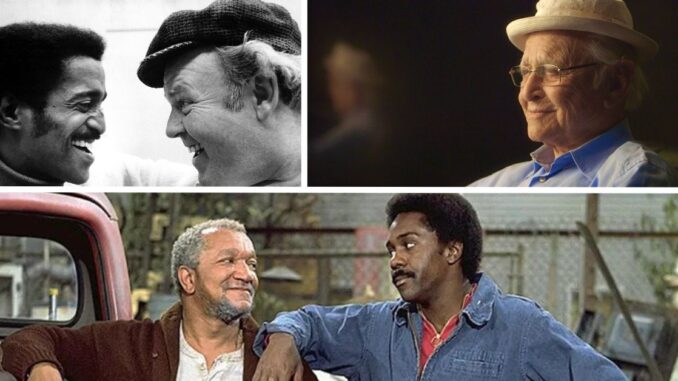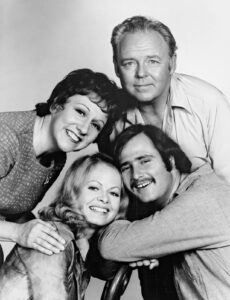
Norman Lear made a big impact on the entertainment industry, and the shock wave he sent through television can still be felt today. Two of Lear’s biggest goals in comedy were: Write comedy based on reality and never underestimate the intelligence of the American people.
With one watch of All in the Family (1971), it was safe to say Lear figured out the right formula for television.
Controversy, which was once avoided at all costs in television, had become the main ingredient to Lear’s top-performing scripts. The change was so profound that many forget the time when Jack Paar couldn’t even make a joke about a toilet with the cameras on.
The leader of these vast changes was Norman Lear. The mild-mannered man was behind characters such as Archie Bunker, Fred Sanford and Maude — an interesting bunch who were never known for being the most graceful.
In a 1973 interview with the Austin American-Statesman, Lear had three on-air shows at one time: All in the Family (1971), Sanford and Son (1972) and Maude (1972). All in the Family ranked first place in the ratings in 1973, while Maude ranked fourth and Sanford and Son were fifth in the ratings.
Part of Lear’s success with all three of these shows was due to his willingness to dive deep into any topic. One of the most controversial episodes of Maude involved a two-part episode in which Maude (Edith Bunker’s abrasive cousin) became pregnant.

Maude’s decision to have an abortion on the series was followed by many angry viewers, protests in church publications and angry letters with Lear’s name on it. Editors encourage readers to write to the Federal Communications Commission, CBS and to the sponsors of Maude.
“They said to me ‘You cannot laugh at abortion,'” Lear said. “You can laugh at Maude and her problems.”
The success of all three series wasn’t just because of the small bits, funny jokes or quick gags. According to Lear, it was because the audience was “viscerally involved” with the characters.
“You can empathize with the characters,” Lear said. “Then, the laughter is what is funny to you, and the poignant moments are deeply felt.”
Abortion wasn’t the only hot topic that Lear decided to speak on; Racism, drugs and politics made an appearance too. All of these topics were meant to make the viewer reflect and learn. Instead of being an Archie Bunker, learn from the mistakes that make you human.
“We build strong characters,” Lear said. “They do things that people care about. When you care about something, the funny things are that much funnier. When you object to something, you object that much harder. And that’s the way you work in TV these days.”
Lear left no apologies for his work, and to him, success was rooted in theatrical reality.
“Do we really want to go back to shows that lasted 30 minutes and centered on whether the father could get a window unstuck?” Lear asked. “Do we want to go back to the smart children and the father who can’t do anything right?”
Lear said he preferred Archie Bunker’s smug ignorance because it was ridiculed. He enjoyed Sanford and Son because it wrecked familiar stereotypes. But Maude was his favorite because it proved to him that “the liberal in her own enlightened way can be just as doctorrinaire on one side as Archie Bunker is on his side.”
Lear wanted to live in a world that brought up real issues and had real conversations about them. His series begins the change, and we can all thank Lear for gifting us Archie.